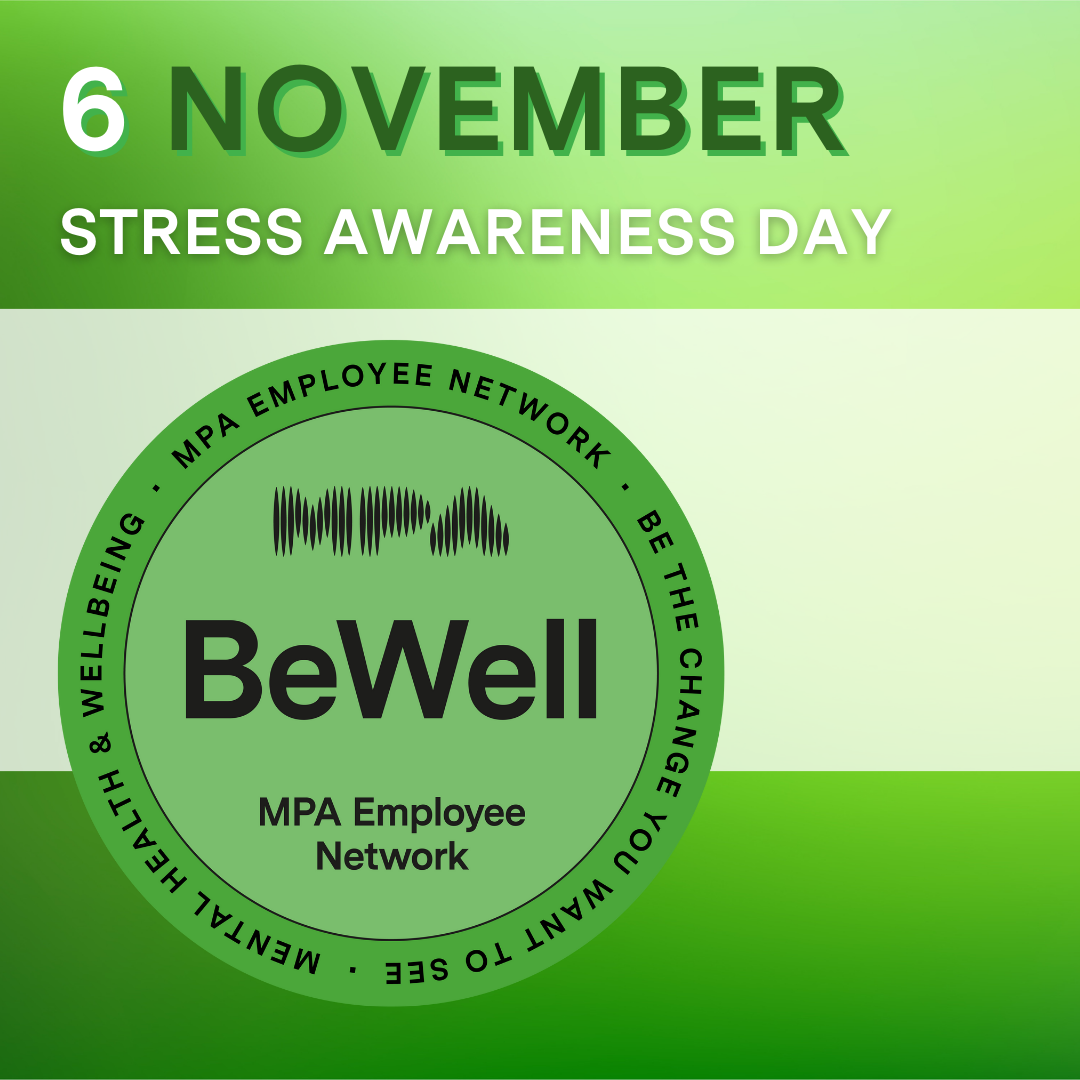MPA Observes National Stress Awareness Day | 6 November

Date
Written by the MPA DEI Team
Navigating our busy lives, it’s easy for us to overlook the toll that stress can take on our mental and physical health. Every year, National Stress Awareness Day serves as an important reminder to reflect and find ways to manage and reduce the stress in our lives.
Our lives have become more fast-paced and driven by technology, stress has become a common challenge affecting people of all ages and backgrounds.
According to the Mental Health Foundation, over 74% of people in the UK have felt so stressed at some point that they felt overwhelmed or unable to cope. Chronic stress is not only linked to mental health conditions like anxiety and depression but also our physical health like heart disease and weakened immunity. Being able to recognise stress is a key part of achieving a healthier lifestyle. By understanding the signs of stress, we can take proactive steps to prevent it from escalating into more serious health problems.
Signs of stress and managing it
Stress can manifest in different ways for different people and being aware of its signs can help us manage it more effectively. Some common indicators can include:
- Physical symptoms – headaches, muscle tension and fatigue
- Emotional symptoms – feeling anxious, irritable or overwhelmed
- Behavioural changes – changes to sleeping patterns, eating habits or social withdrawal.
- Cognitive signs – finding it more difficult to concentrate, more forgetful or racing thoughts
Again, managing stress can look different to everyone. It can require both short-term and long-term lifestyle changes. Some of these could be:
- Practice mindfulness/meditation – simple breathing exercises or mindfulness meditation can help ground us in the present moment. There are numerous apps that offer support through mindfulness and meditation such as Calm and Headspace.
- Being active – physical activity releases endorphins, which improve mood and act as natural stress relievers. Exercise/Movement could be a morning run, a walk with a friend or dancing in your living room!
- Prioritise sleep – poor sleep can heighten stress levels. To ensure we have good sleep hygiene, it is essential to aim for 7 – 9 hours of sleep a night, a consistent schedule and ensure you are not surrounded by devices or blue light at least an hour before you go to sleep. “Why We Sleep” by Matthew Walker deep dives into sleep and its importance.
- Limit technology – we are in a world where we are connected at our fingertips whether that’s socially or from a work standpoint. Designating tech-free times, particularly in the evening can help calm the mind.
National Stress Awareness Day is an opportunity for everyone – individuals, communities, schools and workplaces to raise awareness of stress and mental health. Throughout the UK mental health organisations like Mind, the Stress Management Society and Mental Health Foundation offer resources and events to encourage stress reduction and mental well-being.
If you are interested in joining the conversation, you can participate by sharing helpful resources, checking in on a friend or family member, or attending a local event. Awareness days are powerful at creating conversation, but it is important we take our actions beyond them. National Stress Awareness Day reminds us to be mindful of stress and it is a chance to commit to long-term habits that protect our mental health. Small everyday choices, a moment of meditation, a walk in nature or a call to a friend can contribute to a calmer and more resilient approach to life.
Resources
Mental Health UK – Forward Together
The Stress Management Society – Free Resources
National Stress Awareness Day | Healthwatch
Stress Awareness Week 4-8 November 2024 | Mates in Mind
If you would like to join our BeWell Employee Network, please contact:
Helen Choudhury
Head of Diversity, Equality and Inclusion
[email protected]
Mandy Feighery
D & I Officer
[email protected]